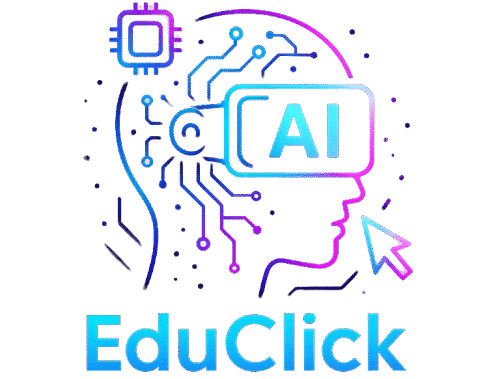AI-Driven Assessment Tools: Revolutionizing Student Evaluation in 2025
Picture yourself back in school, sitting at a desk cluttered with textbooks, notes, and a paper you’ve spent countless nights stressing over. Now, imagine if the way you were assessed wasn’t just based on that paper or the exams but included a more holistic view of your efforts and understanding. In the rapidly evolving landscape of education, the traditional means of student evaluation are being challenged and transformed by the advent of AI-driven assessment tools. As we step into 2025, these tools promise to revolutionize how we measure student learning.

Think back to a time when your test scores didn’t truly reflect your understanding, when the nuances of your learning journey were lost in the rigidity of standardized testing. You might have felt unseen, your unique learning style unacknowledged. This is a common experience shared by many, where the traditional system is bound by its constraints, often failing to capture a student’s true potential and capabilities. In contrast, AI assessment tools provide a more adaptive and personalized approach, aligning evaluation with individual learning pathways.
AI in education is not just a futuristic concept; it is our present reality, offering transformative solutions that cater to every learner’s needs. By harnessing the power of AI, educators can move beyond the limitations of conventional grading systems. You might find it reassuring to know that these tools don’t just grade; they provide detailed feedback, identify strengths and weaknesses, and suggest personalized learning resources, helping you or your child learn more effectively.
As we delve deeper into the impact of AI-driven assessment tools on education in 2025, you’ll discover how these innovations are reshaping the educational landscape, making learning a more inclusive and effective experience for everyone involved.
The Evolution of Student Evaluation through AI
The Shift from Traditional to AI-Enhanced Evaluation
Traditionally, student evaluations have relied heavily on standardized tests and rigid grading systems. These conventional methods often fail to provide a comprehensive assessment of a student’s capabilities. With AI-driven tools, the shift is notable. AI can analyze vast amounts of data to give a more nuanced view of a student’s performance.
- AI-enhanced evaluations are adaptive and can tailor assessments to each student’s learning style.
- They are capable of offering immediate feedback, allowing students to correct misconceptions instantly.
- Educators can use AI tools to track progress over time, creating a dynamic learning journey.
Personalized Learning Paths
The future of education is rooted in personalization, and AI is at the forefront of this movement. By understanding each student’s unique needs, AI tools can create personalized learning paths that enhance overall educational outcomes.
- AI tools assess students’ strengths and areas of improvement, customizing materials accordingly.
- They enable differentiated instruction, ensuring that all students receive the support they need.
- Through AI, educators can monitor engagement and adjust strategies in real-time.
Case Study: A School’s Success Story
Consider a case study from a progressive school district that implemented AI-driven assessment tools. Over the course of one academic year:
- The school reported a 20% increase in student engagement.
- There was a notable improvement in test scores across subjects.
- Teachers spent 30% less time on administrative tasks, allowing more time for instruction and student interaction.
Practical Applications of AI in Student Evaluation
Real-Time Feedback and Monitoring
One of the most significant advantages of AI assessment tools is the ability to provide real-time feedback. This feature allows students to learn from their mistakes instantly, reinforcing concepts while they’re still fresh.
- Students receive customized feedback that helps them understand where they went wrong and how to improve.
- This immediate feedback loop encourages continual learning and adaptation.
- Educators can quickly identify and address widespread misconceptions within a class.
Enhanced Engagement through Interactive Assessments
AI tools can transform assessments into engaging, interactive experiences. Instead of static tests, students encounter dynamic challenges that adapt based on their responses.
- Interactive assessments keep students engaged and motivated.
- They mimic real-world problem-solving scenarios, preparing students for future challenges.
- The use of gamification elements makes learning fun and appealing.
Data-Driven Insights for Educators
AI tools generate detailed analytics that provide educators with insights into student learning patterns and outcomes:
- Educators can make informed decisions about curriculum adjustments based on data.
- Predictive analytics help identify at-risk students early, allowing for timely interventions.
- Schools can track overall performance trends and make strategic improvements.
🎥 Vídeo complementar sobre o tópico
Challenges and Considerations in Implementing AI Tools
Ensuring Data Privacy and Security
While AI offers numerous benefits, implementing these tools in education requires careful consideration of data privacy and security.
- Schools must adhere to strict regulations regarding student data protection.
- AI systems should be transparent, allowing stakeholders to understand data usage.
- Robust security measures are necessary to protect sensitive information from breaches.
Overcoming Resistance to Change
Introducing AI in classrooms can be met with resistance from educators and parents concerned about its implications.
- Ongoing training and support can help educators adapt to new technology.
- Clear communication about the benefits and safeguards of AI can alleviate concerns.
- Highlighting success stories and pilot programs can demonstrate tangible outcomes.
Addressing Equity and Accessibility
AI tools must be implemented in a way that promotes equity and accessibility for all students.
- Investing in technology infrastructure ensures all students have access to AI tools.
- Customization features in AI tools cater to diverse learning needs and backgrounds.
- Partnerships with technology providers can facilitate equitable resource distribution.
The Future of Education with AI Assessment Tools
Long-Term Benefits for Students and Educators
Looking ahead, the integration of AI-driven assessment tools will continue to provide long-term benefits for students and educators alike.
- Students will enjoy a personalized, adaptive learning experience that supports lifelong learning.
- Educators will have more time for meaningful interactions with students, focusing on nurturing their potential.
- Schools will foster an innovative learning environment that keeps pace with technological advancements.
Pioneering Schools Leading the Way
Some schools are already setting examples by integrating AI tools successfully, paving the way for others to follow.
- These pioneer schools report higher satisfaction rates among students and parents.
- They showcase improved academic performance and student well-being.
- Collaborations with AI developers contribute to ongoing innovation and improvement.
The Role of AI in a Global Educational Landscape
AI is not just a local phenomenon; its impact is felt globally, influencing educational practices worldwide.
- AI tools facilitate cross-border educational collaborations and exchange of best practices.
- They support multilingual and multicultural education, enhancing global understanding.
- International assessments benefit from AI’s ability to standardize and personalize evaluation simultaneously.

Frequently Asked Questions
What are AI-driven assessment tools?
AI-driven assessment tools are digital platforms that use artificial intelligence to evaluate student performance. These tools analyze data to provide personalized feedback and adjust assessments according to individual learning paths. By leveraging AI, these tools can offer a more nuanced evaluation process compared to traditional methods.
How do AI tools improve student evaluation?
AI tools enhance student evaluation by providing real-time feedback, personalizing learning experiences, and enabling educators to understand student performance trends. They help identify strengths and weaknesses, allowing for targeted interventions and support, ultimately improving educational outcomes.
Are AI-driven assessments accurate?
AI-driven assessments are highly accurate due to their ability to process and analyze large datasets. They adapt to students’ responses, ensuring that evaluations reflect genuine understanding. However, ensuring accuracy also relies on continuous updates and improvements to the AI algorithms based on new educational data.
What challenges do schools face when implementing AI tools?
Schools face challenges such as ensuring data privacy and security, overcoming resistance to change, and providing equitable access to technology. Addressing these challenges requires robust infrastructural investments, clear communication, and ongoing training for educators and students alike.
Can AI replace traditional teaching methods?
AI is not intended to replace traditional teaching methods but to complement and enhance them. It provides valuable insights and personalized learning opportunities while freeing educators from administrative burdens, allowing them to focus more on teaching and student interactions.
How do AI tools ensure data privacy?
AI tools ensure data privacy by adhering to stringent regulatory standards and employing advanced encryption methods. Transparency is key, with clear policies on data usage and sharing, ensuring that students’ personal information remains secure and confidential.
What role does AI play in global education?
AI plays a significant role in global education by facilitating learning across borders, supporting multilingual instructions, and promoting collaborative educational practices. It helps standardize assessments and offers personalized learning experiences that respect cultural diversity and enhance cross-cultural understanding.
What is the potential future impact of AI in education?
The potential future impact of AI in education is vast, including more personalized and inclusive learning environments, greater efficiency in educational processes, and enhanced educational access worldwide. AI will continue to drive innovation in pedagogical strategies and learning outcomes, shaping the future of education for generations to come.
Conclusion
The advent of AI-driven assessment tools marks a pivotal moment in the evolution of education. As we’ve explored, these tools possess the potential to transform traditional evaluation methods, offering a more comprehensive and personalized approach to assessing student learning. By embracing these innovative technologies, educators and students alike stand to benefit from enhanced engagement, improved learning outcomes, and a more inclusive educational experience.
As we look towards the future, it is crucial for educational institutions to consider these tools not as a replacement for human interaction but as a means to augment and enrich the learning journey. The integration of AI in education offers an opportunity to address longstanding challenges such as disparity in learning outcomes and the need for personalized student support.
So, as you stand on the cusp of this educational revolution, consider how AI-driven assessment tools might shape your own educational experiences or those of your children. Engage with these tools, explore their capabilities, and advocate for their thoughtful implementation in classrooms. Your involvement and advocacy can play a significant role in ensuring that the future of education is bright, equitable, and accessible to all.
Key Takeaways
- AI-driven assessment tools provide personalized and adaptive evaluation experiences for students.
- These tools offer real-time feedback, fostering a continuous learning environment.
- Challenges such as data privacy and resistance to change must be addressed for successful implementation.
- AI tools complement traditional teaching methods, enhancing educational outcomes rather than replacing them.
- The future of education with AI promises more personalized, efficient, and inclusive learning environments globally.




